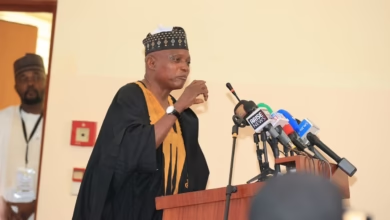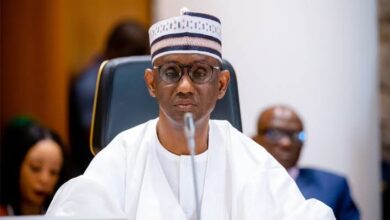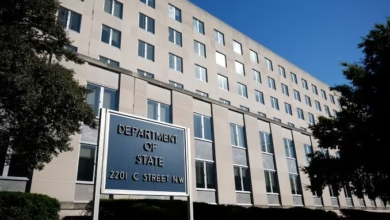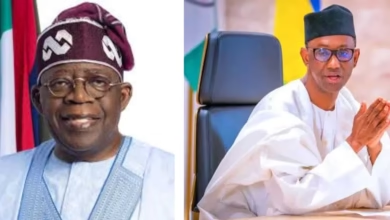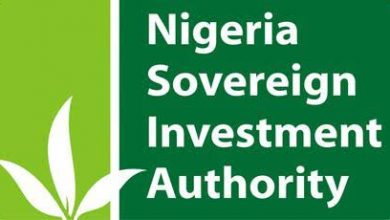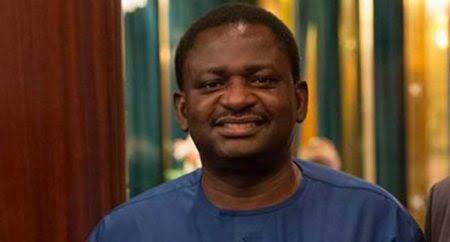
One thing is certain and it is the fact that Femi Adesina, Special Adviser to the President on Media and Publicity is very devoted to his principal. He loves President Muhammadu Buhari to the moon. As one of the President’s frontline men, he will do everything to fend off any unwarranted attack from any individual or group. He did just that last week when he wrote an opinion piece that called out the Christian Association of Nigeria over the group’s uncharitable attack on the president following the unfortunate death of late Rev. Lawan Andami from Adamawa State in the hands of Boko Haram terrorists.
For some reasons best known to CAN, the association has never hidden its resentment for the Buhari-led administration since 2015. The attitude of the association towards the administration is very apparent in its incendiary press statements and public posturing of some of its leaders on national issues. While there is nothing wrong in a group like CAN advancing the interest of its members and Christians in Nigeria, it is expected such should be done in a way that promotes peace, harmony and unity of the country. The article by Mr. Adesina caused some ruckus and generated reactions across the country with many supposed men and women of God and other ethnic-based groups calling for his head.
Personally, I do not see what Mr. Adesina did wrong that warranted the amount of acerbic and bilious reactions against him. Was he expected to fold his hands or send candy to an association that deliberately peddled falsehoods against the President of the country? As a Presidential spokesman, his first duty is to promote, defend and fend off unjustifiable attacks against the President and the Presidency. It is even more so when such attacks are blatant lies meant to disparage and create atmosphere for anarchy in the country.
It would appear the golden era of CAN ended when Pastor Ayo Oritsejafor became President in 2010. From 2010 till date, CAN has played more politics than preaching the gospel of Jesus Christ which should be the primary focus. Playing up of ethnic and religious differences for hegemonic advantage by the ruling elite is not a new phenomenon in Nigeria and post-colonial Africa. Identity politics is used to gain power in a multi-ethnic and multi-religious societies. It is also used to retain power.
Unfortunately, ethno-religious politics assumed a very dangerous dimension in a way never experienced before when activities of Boko Haram terrorists assumed more frightening turn from 2010 with wanton killings and maiming of innocent citizens. Boko Haram, in its more deadly form, started attacking police officers and police stations in Borno State since 2009 following the death of its founder, Mohammed Yusuf. In year 2009 after the death of Yusuf, Boko Haram metamorphosed from a group of religious extremists to a monster immediately Abubakar Sekau became the leader. It launched attacks against churches in Borno State from 2010. First major attack on a church that made global headlines was Christmas day attack on St. Theresa Catholic Church in Madala, a statelite town – 40 kilometres away from the Federal Capital Territory. More than 20 people died in the attack. Prior to when Boko Haram became a full blown terror group, 2011 Presidential election where former President Goodluck Jonathan was the candidate of People’s Democratic Party (PDP) and then General Muhammadu Buhari as candidate of Congress for Progressive Change (CPC) was bitterly contested on ethno-religious consideration.
With the rise in Boko Haram attacks in 2011, former President Jonathan, his party’s leadership and CAN wholeheartedly embraced CAN conspiracy theories weaved around Boko Haram. Boko Haram was framed as a ploy by northern and Islamic leaders to make Nigeria ungovernable for President Jonathan.
In 2014, Peoples Democratic Party even issued a press statement signed by its former National Publicity Secretary, Mr. Olisa Metuh that pejoratively described All Progressives Congress as a Janjaweed party. If 2011 elections were won using ethnicity and religion, 2015 edition was a battle fought on full scale religious hate, partly enabled by CAN. CAN became an unofficial organ of PDP. It would appear CAN has not recovered from the defeat it suffered in 2015 Presidential election because its leaders then abandoned their pulpit for soapbox. CAN was emotional invested in President Jonathan winning a re-election.
President Buhari has not enjoyed any respite from CAN since he became the leader of this country over 4years ago. He has been insulted, harassed, harangued, labeled, ridiculed, blackmailed and unfairly treated by those who are enjoined by the Bible to pray for those in authorities. Instead of praying for Buhari to succeed CAN would rather accuse him of being the sponsor of Boko Haram. The most recent accusation against President Buhari was during a press conference addressed by Rev. Supo Ayokunle after the sad killing of Rev. Lawal Andimi by Boko Haram. Gruesome murder of the CAN leader from Adamawa shocked the country, but instead of mourning a departed soldier of the Cross, CAN chose to weaponise his death to make baseless allegations. President Buhari was accused of supporting Boko Haram to kill Nigerians and his government was pursuing a policy to depopulate Christians. Those were clearly unfounded accusations anyone should levy against a President. Interestingly, CAN did not make such allegations against President Jonathan under whose leadership Boko Haram wantonly destroyed churches, killed more Christians and murdered countless Pastors.
Undisguised hateful disposition of CAN leaders towards President Buhari suggests an association that is deliberately acting adversarial agenda just because their preferred candidate and political party lost election in 2015. It will serve CAN better to transform to a political party and become official opposition party since PDP has not really lived up to that expectation. It does not serve the cause of the gospel for CAN to hide under the banner of Christ to fuel hate and religious disharmony.
It is a misplaced assumption to think that all Christians in Nigeria must necessarily accept whatever CAN is doing, including its nihilistic advocacy as one done in defence of the gospel. Labelling Adesina as taking side with oppressors of brethren is unkind. Without beating about the bush, Adesina, in line of duty, is obligated to disclaim every falsehood peddled against his boss. And this he has done like a faithful steward to his master.

